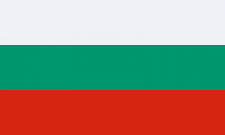
This report, published in May, presents the results of academic and field research conducted as part of the Strengthening the Labour Rights of Migrant Workers in Bulgaria project, implemented by the Center for Legal Aid – Voice in Bulgaria (CLA) within the framework of a programme on labour rights and labour migration. The programme was conducted in conjunction with the Platform for International Cooperation on Undocumented Migrants (PICUM) and the Robert Bosch Stiftung, Germany.
The methodology of this publication includes academic legal and economic analysis combined with field research through interviews with 3 target groups – vulnerable migrant workers, selected employers and business representatives working with migrants, and trade unions. The findings of the fieldwork and academic research form the basis for the report's proposed recommendations for legislative, administrative and policy changes.
One of the main objectives of the “Strengthening the Labour Rights of Migrant Workers in Bulgaria” project is to spark new discussion on migration in Bulgaria, based on the enormous potential that migrants bring, regardless of whether they have arrived primarily seeking work or refuge. The two groups – voluntary and forced migrants - although subject to different regimes of access to territory and residence, often overlap and lack a clear distinction in terms of integration needs, respect for rights, access to services, contribution to the economic and social development of the host society. This is why the main intersection of the two internal migrant groups, and of migrants in general with the local population, is the labour market – where real life and effective integration happen. The report thus seeks to answer the following questions:
- What are the challenges faced by migrant workers, especially the most vulnerable among them, in the process of labour market integration in Bulgaria?
- What are the difficulties faced by employers who have hired or intend to hire migrant workers?
- What is the role of trade unions in the process of labour integration and monitoring for respecting the rights of migrant workers in the country?
- What is the state of the labour market in our country and what are the economic needs and challenges facing Bulgaria?
- What is the potential for migration to be part of the response to these needs?
Answers are provided by analysing the complex legal framework and the difficulties it can create for the most vulnerable migrants, and placing it in the prism of the economic picture of the state of the labour market, the demand for workers in Bulgaria and the role of foreigners in this market. Combining legal and economic analysis best reflects the real demands and conditions in the host society and the requirement for our migration policy to be adequately reformed so that migration is part of the response to those needs.
The findings of the field study and both analyses indicate that:
- Bulgaria’s labour market needs for workers are increasing and migration will play an increasing role in supplying them;
- the profile of the migrant population from third countries in Bulgaria is highly favourable;
- the need for further reform and facilitation of access to work permits, right to work and effective integration of migrants is pressing;
- refugees remain an almost completely untapped labour resource in Bulgaria, despite the demonstrated success of targeted labour integration projects;
- the protection of migrant workers’ rights, especially the most vulnerable among them, has not yet been fully addressed by trade unions, NGOs and the state.
Details
- Authors
- Adrian Nikolov, Diana Radoslavova, Todor Iliev
- Geographic area
- Bulgaria
- Contributor type
- Academics and expertsNon-Governmental Organisations/Civil Society
- Original source
- Posted by
